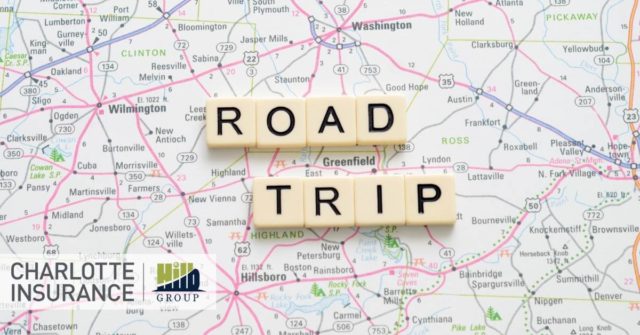Summer is here, and it’s time to hit the road for an adventure! Before you hop behind the wheel, make sure you know how your auto insurance will work and what you need to do if you’re renting a vehicle.
Here’s what you need to know.
Pick: Your Car vs. a Rental
What vehicle are you driving for your road trip? Your vehicle or a rental? That decision will determine a lot about your auto insurance needs and what to do to prepare for your trip.
If you drive your own vehicle, your auto insurance policy will cover you, although there are a few things to do before you hit the road (see below). If you get a rental, there are variables to consider.
Understand: Rental Insurance vs Your Auto Insurance
Rental companies offer multiple insurance coverage options while you have their vehicle in your possession:
- Loss Damage Waiver (LDW)
- Supplemental Liability Coverage (SLC)
- Personal Accident Insurance (PAI)
- Personal Effects Coverage (PEC)
A driver with no auto insurance will need to purchase at least LDW and SLC or purchase a separate auto insurance policy before renting. A driver with their own vehicle and auto insurance will have more options.
Your Auto Insurance May Cover Your Rental
If you have full coverage for your personal vehicle, specifically collision insurance, you can skip the rental insurance. But if you only have the bare minimum liability coverage on your vehicle, consider adding the rental coverage as extra protection.
Your Credit Card May Cover Your Rental Insurance
Check with your credit card company but it’s highly possible that if you pay for the rental on your credit card, they’ll cover the LDW for you. They may also offer other travel perks or benefits, so it’s worth a call before you get on the road.
Think About Roadside Assistance
For drivers with full coverage on their own vehicle, roadside assistance and towing is often included or made available as a benefit. Make sure you have that option turned on before your trip. When you rent a car, ask about roadside assistance or consider purchasing a third-party option. This could be a benefit offered by your credit card company, as well. No matter how you obtain it, make sure you have an easy way to get help if you get stuck on the side of the road.
Reconsider Bare Minimum Liability Coverage
If you only have the legally required amount of liability coverage, that may not be enough for your road trip. Each state mandates its own minimums, and if you travel to a state with higher requirements, your policy may not be enough to cover an out-of-state accident. Most insurers offer a temporary increase if you get into an accident out-of-state but only to that state’s legal minimum. It still may not be enough to cover the entire accident, meaning you’ll pay the difference.
Call Your Insurance Company Before Your Road Trip
Want to make sure you have the best auto insurance coverage for your trip? Plan on letting friends and others drive, too? Contact your insurer to make sure you know what your policy covers and to add coverage if necessary. Car insurance follows the car, so in general, anyone you allow to drive should be covered, but it’s worth a call to check. At the same time, this would be a good opportunity to ask about your current coverage and increase it if necessary.
Planning your next road trip? Contact Charlotte Insurance today to make sure you have the right kind and plenty of auto insurance to get you through whatever happens out on the road.

